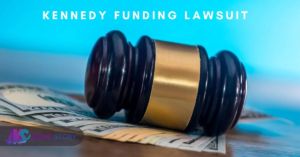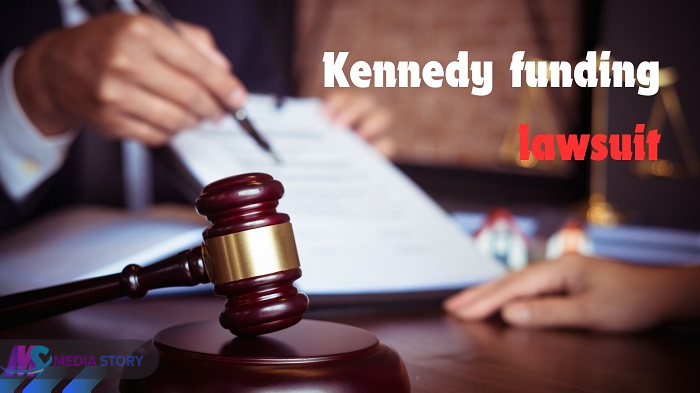The Kennedy Funding lawsuit has generated widespread discussion across the real estate and financial sectors. As news about the Kennedy Funding lawsuit continues to spread, many investors, borrowers, and professionals in the hard money lending industry are eager to understand what led to the dispute and what the potential consequences may be. This article offers a clear, human-focused breakdown of the facts, the history, and the future implications of the Kennedy Funding lawsuit.
What is the Kennedy Funding Lawsuit About?
The Kennedy Funding lawsuit revolves around allegations of misconduct related to the company’s lending practices. Kennedy Funding, a well-known direct private lender, has faced criticism for how it managed certain real estate loan transactions. The lawsuit primarily focuses on claims made by borrowers who argue that the terms of their agreements were not honored or were misleading.
Some of the core allegations include:
- Breach of contract
- Unfair lending practices
- Failure to fund loans as promised
- Misrepresentation of lending terms
These issues are central to the Kennedy Funding lawsuit and have raised concerns among both investors and borrowers.
Bio Table
| Element | Details |
|---|---|
| Company | Kennedy Funding |
| Founded | 1985 |
| Headquarters | Englewood Cliffs, NJ |
| Industry | Real Estate Lending |
| Specialization | Hard Money / Bridge Loans |
| Controversy | Ongoing lawsuit over lending practices |
Background on Kennedy Funding
Kennedy Funding is based in Englewood Cliffs, New Jersey. It has established a name in the hard money lending space by offering fast, asset-based loans for real estate projects. Known for funding deals that traditional banks often reject, Kennedy Funding has closed billions in loans over the past few decades.
Despite this success, the company has also faced multiple legal challenges. The current Kennedy Funding lawsuit is not the first time the firm has encountered scrutiny over its lending tactics.
Legal Details and Case Developments
The Kennedy Funding lawsuit involves plaintiffs who allege they were misled by the company during the lending process. The complaint outlines how Kennedy Funding allegedly made verbal commitments or issued loan term sheets that were later altered or withdrawn at critical moments.
Some borrowers claimed they were left without funding at pivotal stages of their real estate deals, leading to project delays, financial losses, and in some cases, foreclosure. The lawsuit also questions the transparency of the company’s due diligence process and how borrower qualifications were evaluated.

Key Legal Issues at Play
- Validity of contractual agreements
- Interpretation of loan terms
- Ethical obligations of private lenders
These legal angles have made the Kennedy Funding lawsuit a case study for how private lenders operate in high-stakes real estate markets.
Industry Reactions to the Kennedy Funding Lawsuit
The Kennedy Funding lawsuit has sent ripples through the lending and investment communities. Many professionals are now taking a closer look at private lending contracts, vetting practices, and risk disclosures.
Some key reactions:
- Legal analysts argue this case could set precedents for future hard money lending disputes.
- Investors are reassessing their partnerships with non-bank lenders.
- Borrowers are becoming more cautious and demanding clearer documentation.
How This Lawsuit Affects Borrowers
For borrowers, the Kennedy Funding lawsuit serves as a warning about the importance of reading and understanding all loan documents. It also highlights the risk of relying too heavily on verbal agreements or preliminary term sheets.
Here are steps borrowers should consider:
- Work with an experienced real estate attorney.
- Review all loan terms in detail.
- Avoid proceeding without a fully executed loan agreement.
- Request written commitments at every stage.
Implications for the Private Lending Industry
The Kennedy Funding lawsuit could reshape how private lenders conduct business. It emphasizes the need for greater transparency, accountability, and regulatory oversight in an industry that often operates in legal gray areas.
Potential industry shifts:
- Increased demand for third-party audits
- More detailed disclosure requirements
- Standardized documentation practices
Private lenders may also face increased scrutiny from state and federal regulators following the outcome of the Kennedy Funding lawsuit.
Is Kennedy Funding Still Operational?
Yes, despite the lawsuit, Kennedy Funding remains operational and continues to advertise its services. However, its reputation has been affected, and the lawsuit may impact its ability to secure new borrowers or close deals with the same speed and efficiency it once boasted.
Expert Commentary
Industry experts weigh in:
Jane Mullins, a real estate finance attorney: “The Kennedy Funding lawsuit underscores the importance of full transparency in private lending. Borrowers should never skip the fine print.”
David Ramos, a real estate investor: “I’ve used private lenders for years. Cases like this remind me to never rely on assumptions. Everything must be in writing.”
What Happens Next?
The Kennedy Funding lawsuit is still unfolding. As court proceedings continue, the final judgment could result in:
- Financial compensation to plaintiffs
- Revisions to the company’s lending practices
- Broader industry-wide policy changes
Investors and borrowers alike are watching closely.

FAQs

FAQs
1. What is the Kennedy Funding lawsuit about?
It centers on allegations that Kennedy Funding failed to honor loan commitments and misled borrowers.
2. Is Kennedy Funding still in business?
Yes, but its reputation has taken a hit due to the ongoing lawsuit.
3. Are other lenders involved in similar lawsuits?
Yes, the hard money lending space often sees legal disputes due to its flexible but risky nature.
4. Can borrowers avoid such issues?
By reading all contracts, seeking legal advice, and demanding written agreements.
5. Will the lawsuit impact private lending laws?
Possibly. It may lead to stronger regulations and oversight for non-bank lenders.







